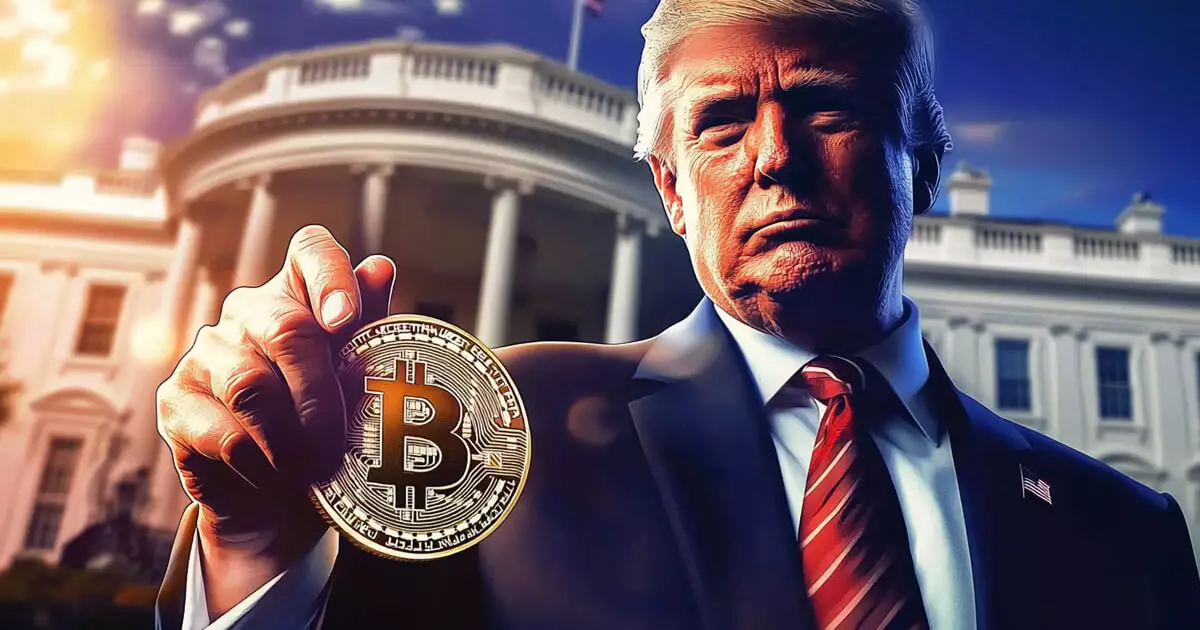In a rapidly evolving digital landscape, the United States is contemplating the creation of a significant role, the “crypto czar,” aimed at establishing robust policies for the burgeoning cryptocurrency market. This initiative, reportedly championed by the Trump administration, comes at a time when the global digital asset market has surged to an impressive $3 trillion. As the demand for regulatory clarity increases, it’s essential to explore who might be appointed to this pivotal role and how they could shape the future of the crypto industry in the U.S.
Former Commodity Futures Trading Commission (CFTC) Chair Chris Giancarlo, affectionately dubbed “Crypto Dad,” is emerging as a strong candidate for this role. Having served as CFTC chair from 2017 to 2019, Giancarlo played a crucial part in introducing Bitcoin futures trading in the U.S., helping to legitimize the cryptocurrency market among traditional financial institutions. His current endeavors include advising various blockchain advocacy groups and leading the Digital Dollar Project. His focus on fostering innovation while being critical of a federally controlled central bank digital currency (CBDC) aligns him philosophically with Trump’s economic plans, positioning him well for the crypto czar role.
The crypto czar’s responsibilities would likely encompass creating comprehensive regulatory frameworks to ensure consumer protection, overseeing stablecoin developments, and fostering an environment conducive to innovation within U.S. crypto exchanges. As Trump has expressed a commitment to reforming the current regulatory landscape—criticizing the enforcement-first approach of the Biden administration—the establishment of this position could signal a shift toward a more supportive framework for digital assets.
This role could act as a bridge between governmental oversight and the industry, which has seen many firms venture abroad in search of friendlier regulatory environments. Trump’s proposition of a presidential advisory council further suggests a strategic intent to create a collaborative atmosphere among stakeholders, facilitating dialogue about the future of cryptocurrency.
Reactions to the potential creation of the crypto czar position have been mixed. While many industry figures, including prominent leaders from Coinbase and Ripple, have shown support for Giancarlo’s candidacy, skepticism remains among some of Trump’s advisers. Critics argue that introducing new bureaucracy contradicts Trump’s past commitments to diminish federal government footprint. However, proponents insist that the right regulatory structure is essential for promoting growth in a market that has considerable potential.
As discussions continue and the Trump administration weighs its options, the potential for a crypto czar to reshape U.S. digital asset policy is becoming clearer. If Giancarlo or another knowledgeable candidate steps into this role, it could signify a significant turning point for the cryptocurrency sector, marrying regulatory oversight with the much-needed innovation that is crucial for its evolution. The road ahead is laden with challenges, but with the right leadership, the U.S. could emerge as a proactive player in the global digital economy. The obsession with bureaucratic reduction must be balanced against the undeniable need for clear and fair regulations, setting the stage for a bright future in the cryptocurrency landscape.

